3a/352 South Street O’Connor WA 6163 | (08) 93376460
Home » Physio Fremantle » GLA:D Program
Book a GLA:D program in Perth with Rushil Shah, our certified GLA:D program provider.
The GLA:D® (Good Life with osteoArthritis: Denmark) program is an internationally acclaimed initiative that provides education and exercise under the guidance of a physiotherapist.
It is recognised as the first-line, evidence-based treatment for hip and knee osteoarthritis (OA).
At Next Wave Therapy in O’Connor, our physiotherapist Rushil Shah leads this transformative program, helping you manage pain, improve mobility, and enhance your quality of life.
To book online, click the button below to use our online booking system, or call us at 08 9337 6460.
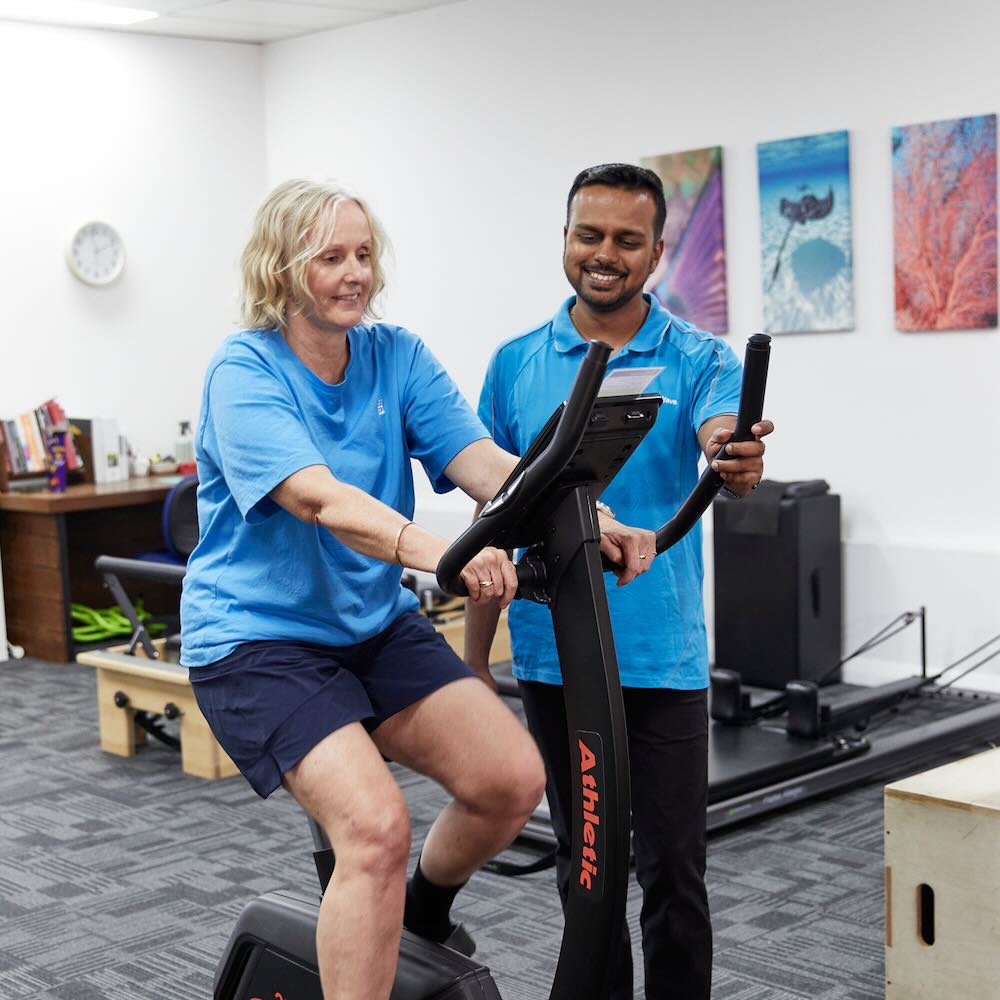
The GLA:D program is $956 and includes:
Health Fund Rebates:
• Your journey begins with an initial assessment to evaluate your current functional fitness and ability. This helps us tailor the program to your specific needs.
• Two comprehensive education sessions where our physiotherapist shares the latest research and management strategies for OA.
• Opportunities to ask questions and engage in discussions with both the physiotherapist and fellow participants.
• 12 group exercise sessions held twice a week over six weeks.
• Designed to improve muscle control around affected joints, enhance strength, and increase confidence.
• Exercises are practical and can be applied to your everyday activities.
• A final consultation to review your progress and plan the next steps in your osteoarthritis management.
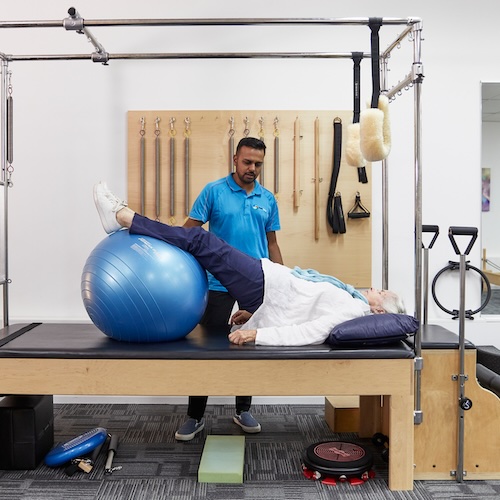
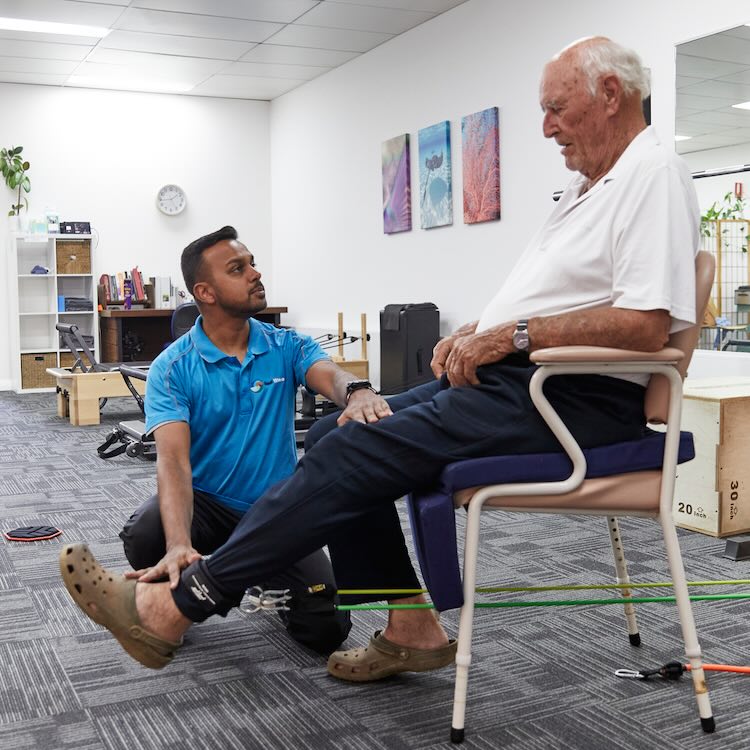
The program is ideal for individuals who:
Note: The program may not be suitable for those who:
Our physiotherapist will assess your suitability during the initial assessment.
Book an Initial Assessment:
Attend the First Education Session:
Begin Your Journey:
To book your initial assessment or reserve a spot in the next education session:
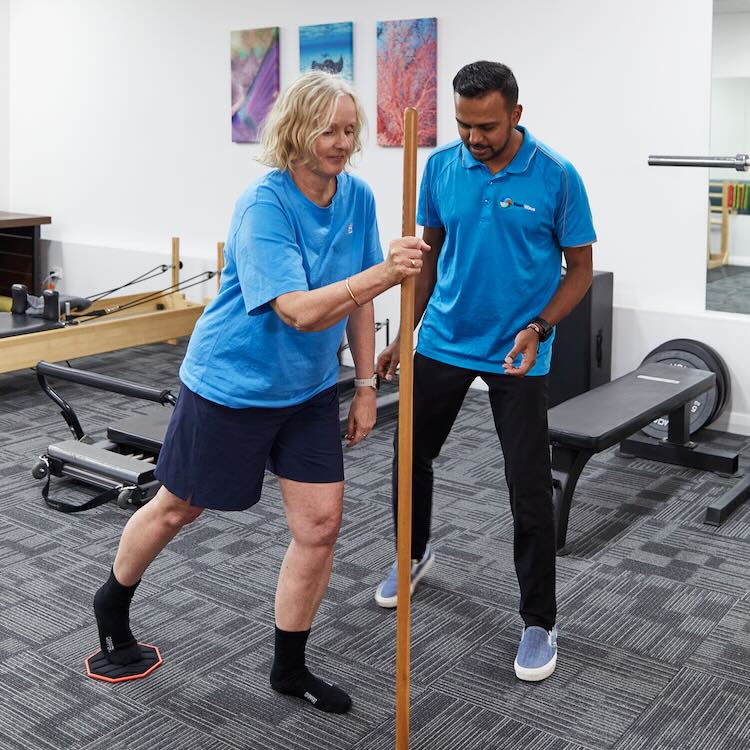
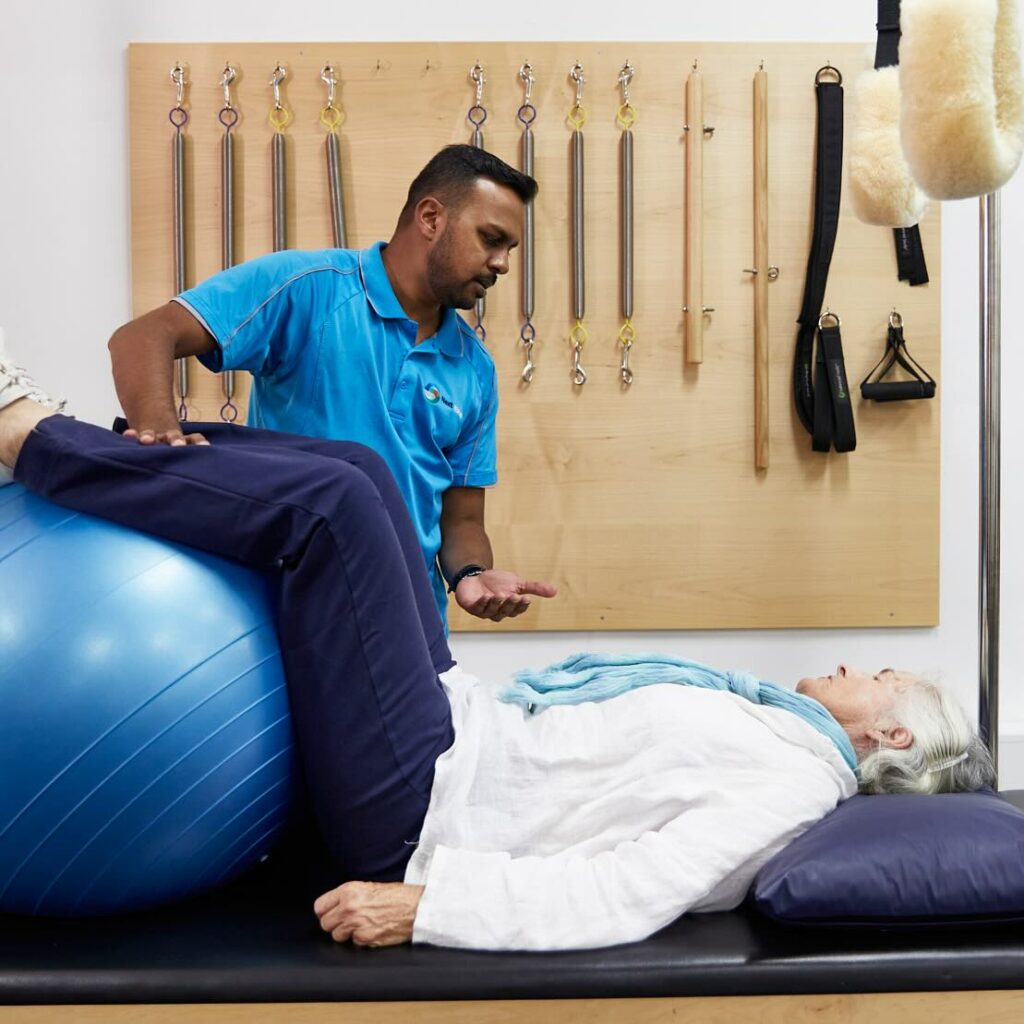
• Registration with GLA:D Australia: After your initial assessment, you’ll be registered with GLA:D Australia. They will contact you to fill out surveys to track your progress.
• Exercise and Education Sessions: Complete 12 supervised 60-minute exercise sessions over 6 weeks. Attend 2 education sessions to deepen your understanding of OA management.
• Final Consultation: Review your progress with Rushil and receive advice on maintaining your improvements and planning next steps.
We are excited to offer a fully reimbursed GLA:D program for eligible HCF members. This means you can participate in the program at no out-of-pocket cost, and your physiotherapy extras limits remain unaffected.
To be eligible, you must:
• Have private health insurance with HCF.
• Have held HCF hospital cover for at least 12 months.
• Have hospital cover that includes joint replacement surgery for at least 2 months.
• Have premiums up to date.
• Meet the clinical eligibility criteria:
◦ Be 18 years or older.
◦ Have a diagnosis of symptomatic hip or knee osteoarthritis likely to require joint replacement surgery in the next few years, as assessed by an orthopaedic surgeon, GP, or physiotherapist.
◦ Not have had a total or partial hip or knee joint replacement surgery.
◦ Not have participated in the GLA:D® program in the previous 2 years.
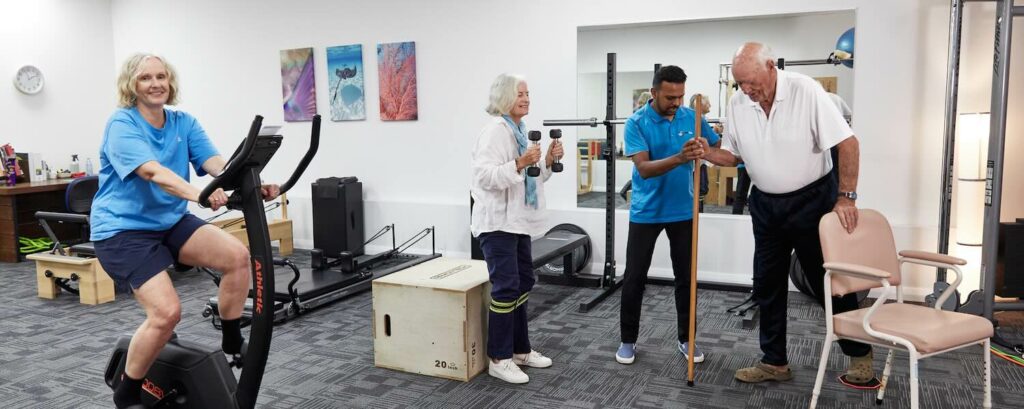
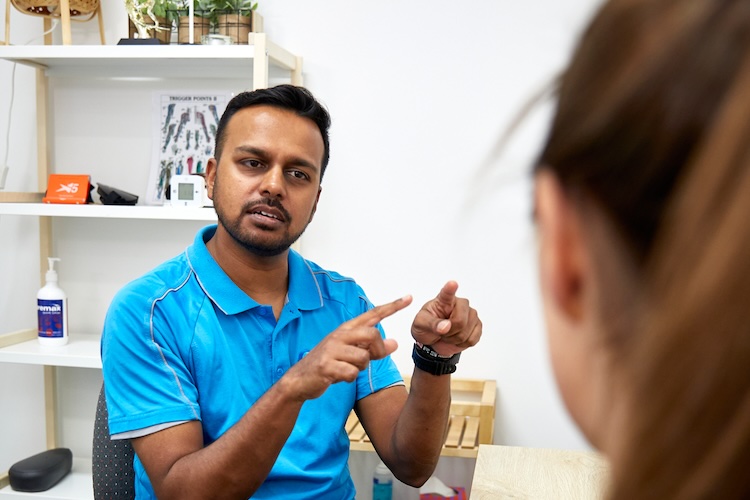
• Reduced pain levels by an average of 36%.
• Improved quality of life with greater ease in daily activities.
• Decreased need for medication for joint-related pain.
• Learning how to self-manage arthritis effectively.
• Gaining exercises that can be used in everyday life.
• Preventing symptom progression and potentially delaying or avoiding surgery.
• Enhanced strength and confidence in joint functionality.
• Increased physical activity levels.
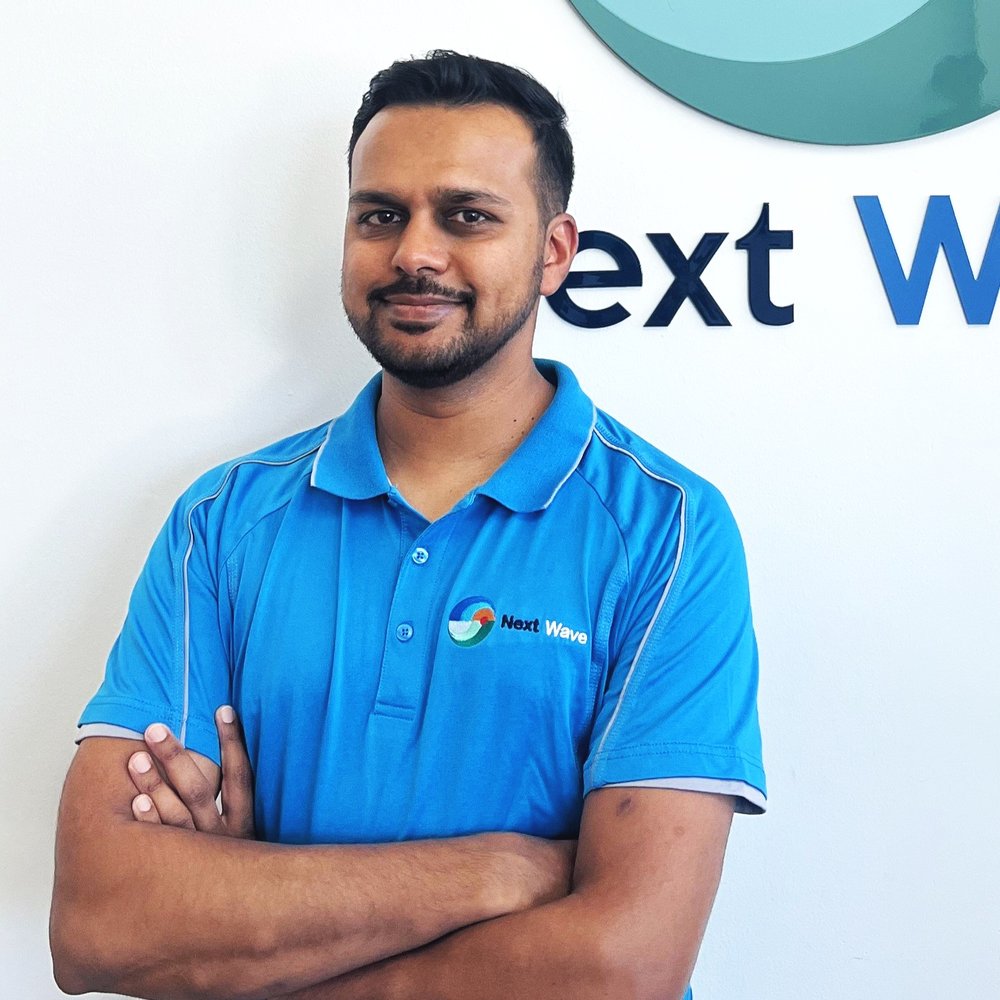
Rushil has a passion for treating athletes, with a special focus on golf, racquet sports, cricket, and gymnastics.
Yes, anyone can join the program. If you have private health insurance with physiotherapy cover, you can make a claim for the program. However, there may be some out-of-pocket costs involved.
In addition to the GLA:D program, we provide:
Cancellations with less than 24 hours notice or non-attendance are billed at 50% of the consult fee and do not qualify for a rebate.
A doctor’s referral is generally not required unless your condition is associated with Workers Compensation, Motor Vehicle Injury, Veterans Affairs, or a Medicare Mental Health Care plan. In most cases, you can directly schedule an appointment since all our physiotherapists are primary contact practitioners capable of providing comprehensive care without a referral.
As a person seeking healthcare in WA, you have the right to access, safety, respect, partnership, information, privacy, and the ability to provide feedback. For more detailed information on your rights, review the Australian Charter of Healthcare Rights.
We prioritise your privacy. Our strict privacy policy ensures the confidentiality of your personal information, using it solely for your healthcare. If you have any privacy concerns or questions, please reach out, and we’ll address them promptly. Your trust is crucial to us. Review our privacy policy here.